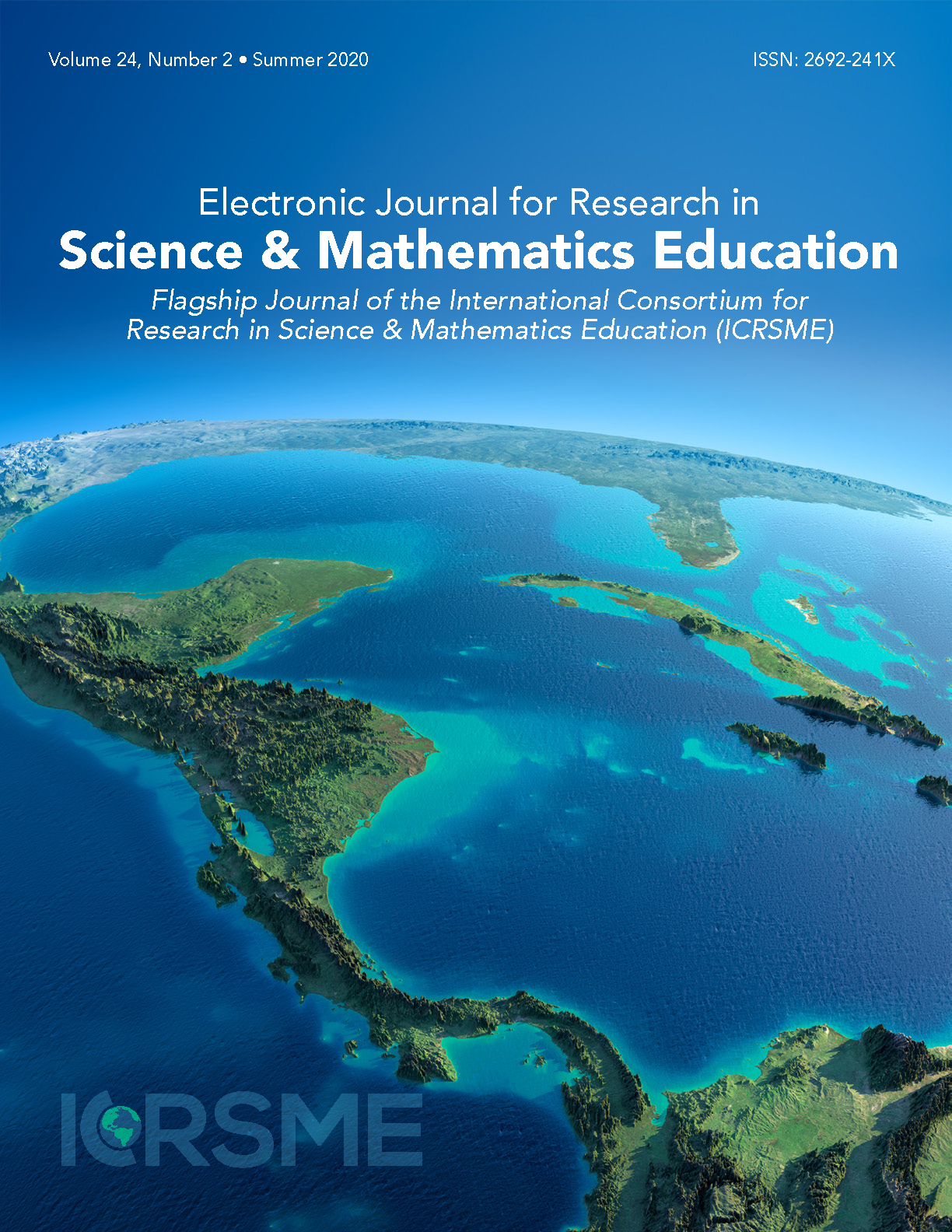The Slippery Business of Measuring Beliefs Lessons from a Failed Attempt at Developing an Instrument to Measure Teachers' Epistemic Beliefs about Physics Knowledge
Main Article Content
Abstract
Numerous studies have been published about instruments intended to quantitatively measure students’ epistemic beliefs about science; however, as this researcher would discover, developing an instrument to accurately measure epistemic beliefs about physics would not be as straightforward as the literature would make it seem. To address the gap in instruments intended to measure teachers’ epistemic beliefs, this researcher endeavored to develop a valid, reliable, and theoretically grounded quantitative instrument which could measure of teachers’ epistemic beliefs about physics. 224 preservice and in-service teachers involved in science education completed a 29-item electronic survey developed using a literature informed framework of epistemic beliefs about physics. Results were used to quantitatively analyze the reliability and validity of this developed instrument. Additionally, as part of a parallel study, 14 of these teachers were interviewed regarding their beliefs about knowing (a.k.a. epistemic beliefs) in physics using semi-structured interviews. Using exploratory factor analysis, a valid solution was found for a 14-item version of this survey; however, the factors did not align with those common to epistemic beliefs literature nor was this factor solution supported by interview results. Evidence from attempts to validate this instrument, along with a lack of alignment between survey-determined epistemic profiles and interview-determined epistemic profiles for 14 teachers, showcase the problematic nature of using standardized, quantitative approaches to measure teachers’ beliefs. Findings from this study suggest that educational researchers deeply consider the nuance needed for their study prior to choosing a methodological approach to measure epistemic beliefs.
Article Details
© 2025 Electronic Journal for Research in Science & Mathematics Education (EJRSME)
